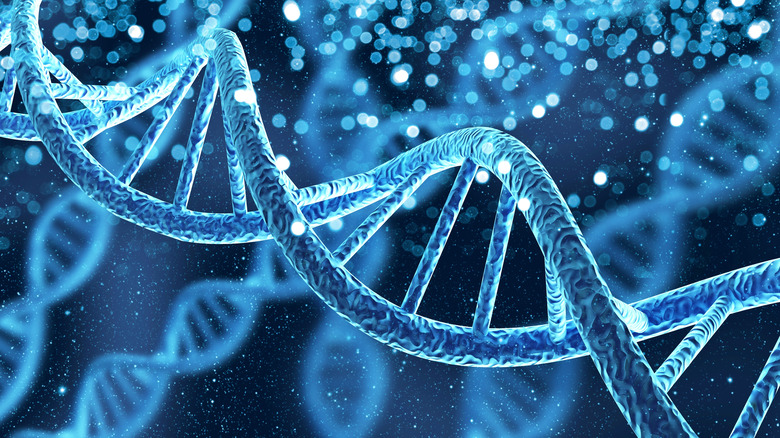Is Procrastination Genetic?
Why do today what you can put off until tomorrow, right? We've all succumbed to procrastination every now and again. In fact, The New York Times reports that we often utilize procrastination as a coping skill in the face of difficult emotions related to specific tasks or activities. While procrastination is a perfectly normal human response to stress, some studies suggest that our genes may play a role in whether or not we become chronic procrastinators (via BBC Science Focus).
Dr. Sharad Paul, author of "The Genetics Of Health: Understand Your Genes for Better Health," tells Fast Company that procrastination was used as a means of survival by early humans. "The genes progressed down generations because these people were still holed up in caves fearful of predators [saying], 'My tools are not sharp enough. I better spend more time perfecting this spear,'" Dr. Paul told the publication. "These people survived more because they avoided conflict, and these genes were handed down to future generations."
The biology of procrastination
Lending further evidence to the influence of genetics on procrastination, researchers from a 2014 longitudinal study published in Psychological Science examined self-reported data from over 340 same-sex pairs of twins. The digital survey questions centered on topics of procrastination, impulsivity, and goal-management failures. Study findings showed a genetic overlap between procrastination and a tendency towards impulsivity. Procrastination was found to be 46% heritable, while impulsivity was found to be just shy of 50% heritable. However, BBC Science Focus reports that environmental factors related to participant upbringing could have also influenced study results.
Additionally, a 2018 study published in SAGE journals found an association between procrastination and amygdala size. Study findings showed that those with larger amygdalas — the brain region associated with emotion regulation (via McGovern Medical School) — were more prone to procrastination.
While not always the case, in some instances, procrastination may be linked to certain mental health disorders.
Procrastination and mental health
"We know that some people are predisposed to having higher or lower thresholds for the amount of negative emotions they can tolerate," Dr. Fuschia Sirois, procrastination researcher at the University of Sheffield, tells BBC Science Focus. "And if your tolerance for negative emotions is set very low, you're in an uncomfortable position. Unless you have good emotion regulation skills, you're likely to procrastinate as it's an immediate rewarding strategy for managing negative emotions."
According to U.S. News & World Report, procrastination has been tied to anxiety, depression, and ADHD. Because these disorders can be passed down through our genes, this could lend one possible explanation as to why procrastination may potentially be genetic. Twin studies show that as much as 40% of a person's susceptibility to depression and anxiety can be attributed to genetics (via Behaviour Research and Therapy). Similarly, ADHD shows a heritability rate as high as 74% (per Molecular Psychiatry).
"Procrastinators, especially chronic procrastinators, are extremely hard on themselves. They engage in these types of ruminative, negative, self-evaluative thoughts," Dr. Fuschia Sirois told BBC Science Focus. "However, if you engage in self-compassion, it's possible to stop these wheels spinning."



